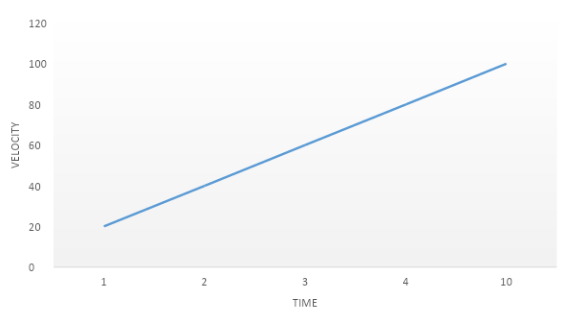Question
Question: What does the slope of the velocity-time graph represent? (A) Distance (B) Speed (C) Accelera...
What does the slope of the velocity-time graph represent?
(A) Distance
(B) Speed
(C) Acceleration
(D) Displacement
Solution
Velocity-time graph is helpful in finding the position, distance and the time at which an object is present at a particular position. It is very easy to locate the object by looking at the graph, rather than working out on a formula.
Complete step by step solution:
We know that, slope of a graph is given by,
⇒slope=co−ordinatesofx−axisco−ordinatesofy−axis
Let us look at an example,

We have plotted a v-t graph for a body. In this graph, let us consider 0-40 m/s velocity (m/s) and the time taken (s) is 2 seconds. Thus, the slope comes as,
⇒slope=2−040−0
⇒slope=240m/s/s
Then the slope is,
⇒slope=20m/s2 .
We already know that the acceleration is the quantity that has a SI unit as m/s2.
Hence, the slope of a velocity-time graph represents the acceleration of the body.
Thus, the correct answer is option C.
Note:
-The acceleration or deceleration depends on the slope. The steeper the slope, greater the acceleration. If the line slopes down from left to right direction, that means that the object is slowing down and it denotes deceleration. Deceleration is the negative acceleration. It denotes that the velocity of acceleration is decreasing with time.
-As the slope of a velocity-time graph represents the acceleration of the body, the area under the curve represents the displacement or the distance travelled by the body with the applied velocity and time.
Here, in this graph the area under the graph is also equal to the area of a triangle. If we need to find out the distance travelled by the body in 4 second, the area comes as, Areaofatriangle=21×base×height .
⇒21×4×80=160m
Thus, the distance travelled by the body in 4 seconds is 160 m.
